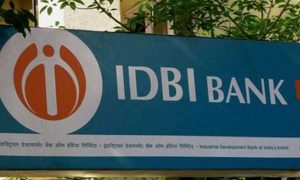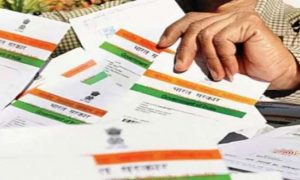Know all about the dos and don’ts of education loans for studying abroad.
Education loans for studying abroad has evolved significantly since the initiation by the State Bank of India in 1995. The Reserve Bank of India’s Educational Loan Scheme, established in 2001 and subsequently updated, exemplifies the regulatory commitment to meeting the changing financial needs of students. According to data from public sector banks, over the last decade, 461,017 students have availed educational loans for studying abroad. Unicreds, a global student loan marketplace, alone processed nearly 80,000 applications in the current year, achieving a 40% success rate post-documentation. Unicreds has strategically partnered with 15+ financial institutions, has a presence in over 20 countries and has so far facilitated 5,000+ loans with a total disbursement of over ₹800 crores.
In an exclusive interview, Amit Singh, founder of Unicreds, details all that a student should know before applying for an education loan to study abroad.
Read More: GATE 2024 Admit Card To Release Soon; Check Schedule, Exam Date, Distribution Of Marks
Who are the best education loan providers in India?
There are several banks and non-banking financial companies (NBFC) offering students loans, some of the notable ones are: ICICI Bank, Union Bank, IDFC First Bank, Bank of Baroda, Axis Bank, HDFC Credila, Avanse, Auxilo Finserv, InCred Education loan and Mpower financing.
What’s the average rate of interest & tenure?
As a general guideline:
Banks: Interest rates: between 8.55% and 15%; Loan tenure can extend up to 15 years.
NBFCs: Interest rates: between 10% and 15%; Longer loan tenures of up to 20 years are often available.
Things to keep in mind while applying for a loan:
• Borrow Wisely: Borrow within your means without compromising financial goals. Monitor your loan-to-income ratio for a manageable amount.
• Choose Loan Tenure Carefully: Consider the impact of tenure on interest payments. Gradually increase EMIs with rising income.
• Monitor Your Credit Score: Maintain a credit score above 650 for better options.
• Compare Loan Rates Before Committing: Research and compare interest rates among institutions.
How to read the fine print?
• Review Loan Details: Confirm the loan amount and release date.
• Understand Involved Parties: Note lender details and cosigners, if applicable.
• Check Interest Terms: Determine fixed or variable rates and understand the annual percentage yield.
• Understand Glossary: Familiarise yourself with terms and seek clarification, if needed.
• Consult a Lawyer if Necessary: Seek legal advice for unclear terms before signing.
Read More: School Holidays In December 2023: Schools To Remain Shut On These Days. Check Full List Here
What are the main reasons for rejection of a student loan application?
• Low Co-Applicant CIBIL Score: Co-applicant with a CIBIL score below 650 may face rejection. Opt for a co-applicant with a strong CIBIL score.
• Limited Co-Applicant Income: Co-applicant must meet the lender’s salary requirements. Income limits vary by course, country, and CIBIL score, with some flexibility.
• Incomplete or Fake Documents: Proper documentation is crucial for approval. Incomplete or fake documents can lead to delays and rejection.
• Poor Academic Performance: Some lenders consider poor academic performance as a factor affecting the ability to repay the loan.
• Insufficient Collateral: Insufficient collateral can lead to rejection for loans requiring this guarantee.
• Unrecognised University or Course: Applying for a loan for an unrecognised university or course may result in rejection.
• Financial Background: Lenders assess the financial background of the borrower and co-applicant. A poor financial background can be a reason for rejection.
Who is eligible as co-signer? What is the burden of the co-signer in case of default in repayment of loan?
A co-signer of an education loan can be the parent or spouse of the applicant or any other member willing to help the student. If the primary borrower defaults on the co-signed loan, both the student and co-signer share equal responsibility for repayment, and late/missed payments affect both their credit histories.
What are the collaterals, if any?
At present, the education loans offered by the bank comprise of two options, Collateral based and non-collateral based. In case of collateral-based loans, banks typically accept two types of collateral for international education loans. If you can provide property as collateral, it’s best to secure a collateral education loan from a government bank. Collateral can include properties like houses, flats, non-agricultural land, fixed deposits, or life insurance.
Read More: NEET SS Counselling 2023: Round 1 Reporting Dates Revised; MCC Round 2 Registration From This Date
What is the processing time/fee?
The processing time and fees for educational loans vary among banks and depend on the loan type. The processing time can extend up to 14-25 days, though certain banks, such as Union Bank of India, claim a quicker turnaround of 7 working days. Processing fees typically range from 0.5% to 2.5% of the total loan amount and vary among banks, some of which may have upfront fees.
For NBFCs, the processing time ranges from 7 to 45 days, with processing fees of 1-10%. UniCreds help students to get their loan sanctioned within 3-4 days from a NBFC, 5-7 days from banks and 30 minutes from foreign lenders.
How early should one apply? For example, if one were to enrol in Spring 2024, when should one apply?
For enrolment in Spring 2024, it’s advisable to start your loan application process 90-100 days before the academic session begins. This timeframe allows you to complete the necessary documentation and ensures timely disbursement of funds, avoiding any last-minute rush. Early application helps secure financial support and reduces stress during the admission process. It’s advisable to keep basic KYC academic reports and financials in check.
What is the usual grace period?
The moratorium period for educational loans, lasting up to 6 months post-course completion, allows borrowers time to secure employment or make preparations for repayment without mandatory instalments. Interest accrual during this period varies based on loan terms.
What happens in case of default?
Credit Score Consequences:
• Defaulting on unsecured education loans can lead to a lender reporting you to credit bureaus, seriously impacting your credit score and can restrict your access to new credit opportunities.
Collateral Loss in Secured Loans:
• Secured education loan borrowers risk losing their pledged collateral if they default.
• Non-repayment can lead to the lender seizing and auctioning the collateral to recover outstanding dues.
Impact on Guarantors:
• If you co-borrow an education loan with a guarantor and default, the bank will pursue the guarantor for repayment.
• Guarantors may also experience credit score damage, affecting their future loan eligibility.





































